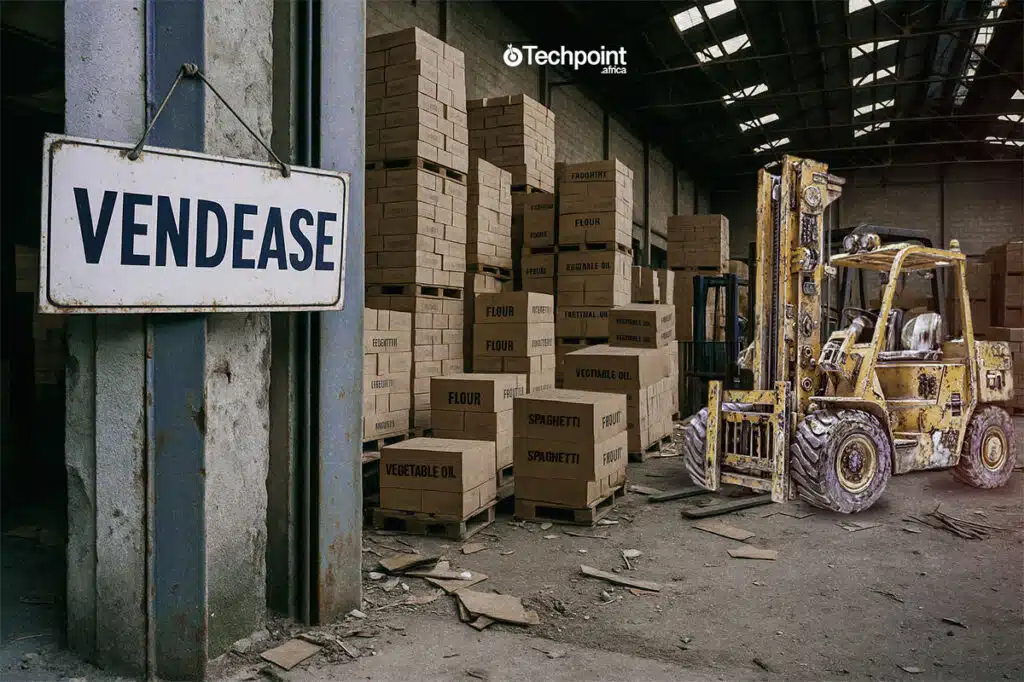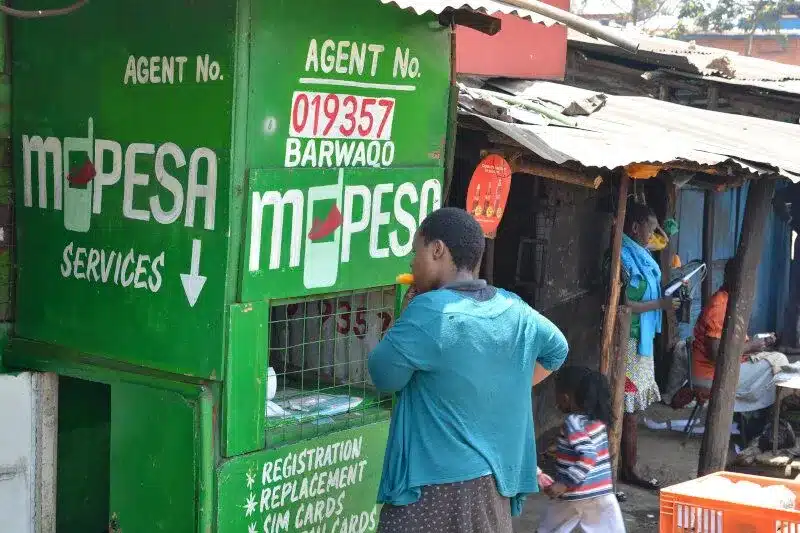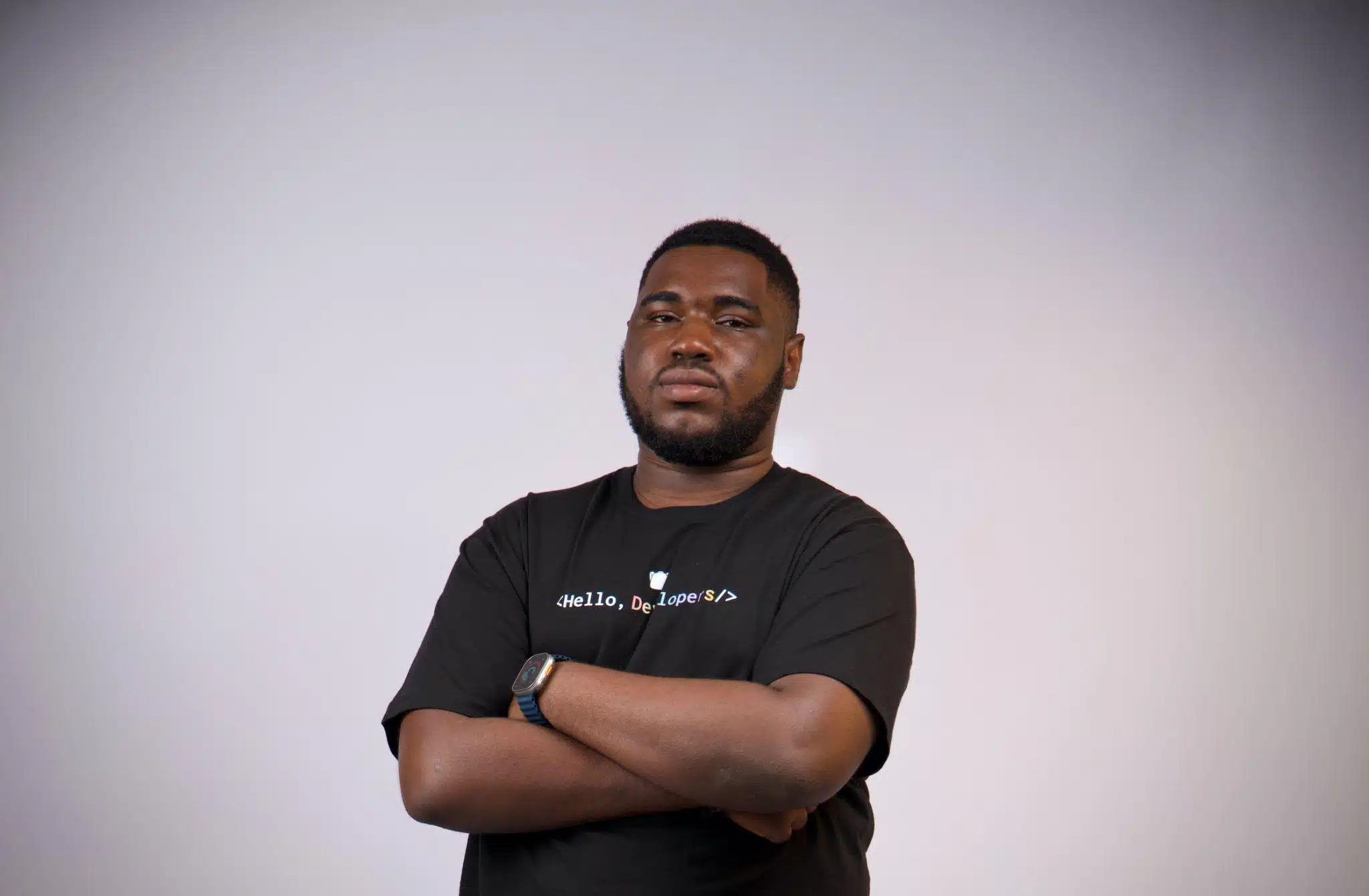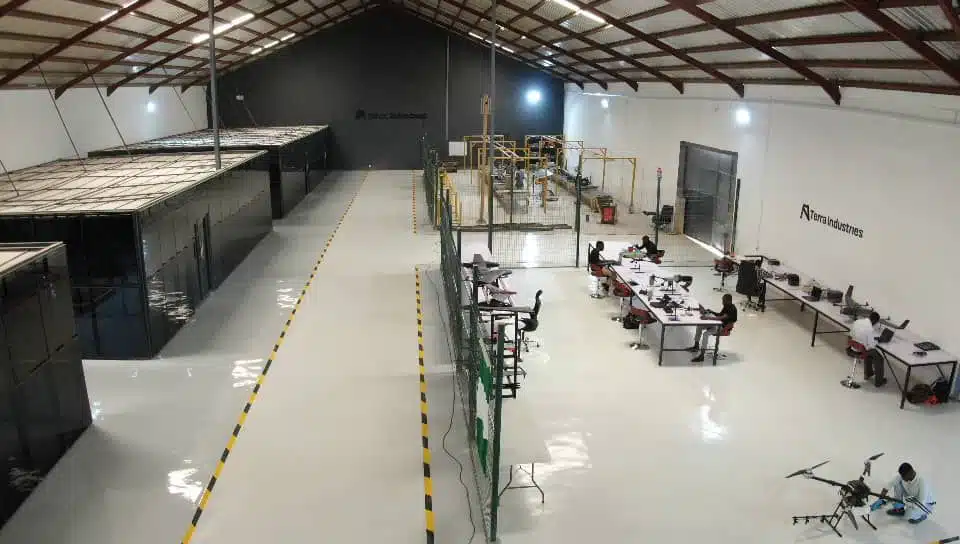Geiá sou,
Victoria from Techpoint here,
Here’s what I’ve got for you today:
- Telcos roll out the red tape for Starlink
- What really went wrong at Vendease?
- Moove eyes unicorn status with new $300M raise
Telcos roll out the red tape for Starlink

If you ask me what’s up with the South Africa vs. Starlink drama, I’d say, I’m tired. But apparently, the telcos are not. In my head, they basically said, “Tired? How dare you, Latoria Victoria? People love this saga, and you’re here to serve the readers. Don’t dull!” So, here we are with the latest tea.
South Africa’s biggest mobile network operators — MTN, Vodacom, and Telkom — say they’re open to Starlink coming in, but also kind of want it to chill. At a parliamentary hearing last week, they told lawmakers that while satellite services like Starlink are great for digital inclusion, there should be a “socio-economic impact assessment” first. Translation: it might take years before anything happens.
Interestingly, MTN and Vodacom say they already partner with satellite players like Starlink in other countries. MTN’s CEO even said satellite tech complements their services. Vodacom echoed that sentiment, saying Starlink could help connect rural areas. But, and here’s the kicker: they want Starlink to face the same strict rules local telcos follow, especially around local ownership and regulations.
Telkom, too, called Starlink a “partner,” not a threat. But actions speak louder. South African telcos are clearly using regulation and bureaucracy to stall. Think: long impact assessments and licensing reviews that could drag on forever. It’s a classic playbook move; one Telkom’s used before to protect its turf.
The real issue? Starlink’s broadband service is fast, affordable, and now testing voice calls. That’s a major threat. While local telcos have been dealing with red tape for years, letting Starlink waltz in without hurdles would feel unfair, at least to them. So, they’re lobbying hard to keep things, well, complicated.
Bottom line: Starlink wants in, telcos say “yes, but not so fast,” and Icasa, the regulator, is being urged to hit pause. Whether this slows down progress or protects fair play is up for debate. But one thing’s certain, this drama isn’t ending anytime soon.

Victoria Fakiya – Senior Writer
Techpoint Digest
Stop struggling to find your tech career path
Discover in-demand tech skills and build a standout portfolio in this FREE 5-day email course
What really went wrong at Vendease?

Vendease made headlines earlier this year, but not for the reasons anyone hoped. In March 2025, news broke that the Nigerian startup, once celebrated for digitising food supply chains, had slashed salaries to a flat ₦140,000 for all staff. This, according to management, was the first step in a five-stage recovery plan, with promises to return to full pay by December if the company hit its targets.
Insiders told Techpoint Africa the news first dropped in a February meeting, with leadership warning of more possible layoffs. This shocked many, especially after the sweeping job cuts in September 2024 that were supposed to stabilise things. Employees were told to sign contracts agreeing to the new terms, but none did.
That’s when Vendease returned with a “better” offer: Instead of a pay cut, ₦140,000 would be deducted monthly and channelled into an employee stock option pool (ESOP). Most people agreed. But then came the curveball: February salaries wouldn’t be paid. And when March rolled around, everyone got only ₦140,000, regardless of what they signed.
CEO Olumide Fayankin later told Techpoint Africa that salary backlogs were being cleared “in phases” and said the company was putting safeguards in place. But the trust had already begun to erode, especially after staff learnt that the original ESOP terms were being tweaked post-signature, from partial vesting in 2025 to full vesting after four years.
Digging deeper, sources say the rot started long before the money trouble. The company’s shift away from its HoReCa roots after funding in 2022 triggered internal chaos. Layoffs were done without notice, departments were merged without prep, and founding team members found themselves pushed aside in favour of “outside talent.”
The business bet on chasing bigger revenue numbers at the expense of what was already working, and many believe that was the beginning of the end. Want to find out more about the fall of the house of Vendease? Read Chimgozirim’s latest for Techpoint Africa.
Moove eyes unicorn status with new $300M raise

Just four years after launching in Lagos, Moove is gearing up to join the unicorn club with a $300 million equity raise in the works. The mobility fintech, which started off financing cars for Uber drivers in Nigeria, is now eyeing a $1 billion+ valuation, thanks to blistering global growth.
Moove’s rise has been anything but slow. The company has tripled its annualised revenue to $360 million in just over a year and now operates in 13 markets across Africa, Latin America, Asia, and the Middle East. Its model? Simple: revenue-based financing for gig workers. No collateral, no drama, just flexible repayments linked to inc0me.
Backed by big-name investors like Uber and Mubadala, Moove has already pulled in over $409 million in funding. Its most recent haul was a $100 million Series B round in March 2024 that valued the startup at $750 million. Now, with a fresh raise, it’s gunning for unicorn status and a wider global footprint.
The Lagos-born company is also making waves in the US, where it runs electric vehicles for Waymo’s robotaxi operations in Phoenix and Miami. It’s a big step for a startup that only began in 2020 but has since set its sights far beyond African roads.
Moove’s acquisition of Brazil’s Kovi in 2023 gave it a stronghold in Latin America, bolstering both its reach and its asset base. The deal was a strategic play that sent a clear message to investors: this company is thinking global and long-term.
For African founders, Moove’s story is a powerful reminder that world-class, venture-backed businesses can emerge from anywhere. And as global funding slows, Moove’s traction proves there’s still appetite for startups solving real-world problems, especially when the numbers speak for themselves.
In case you missed it
- Tesla has launched its first African office in Casablanca
What I’m watching and reading
- Is Elon Musk A Genius or a Fraud? | Middle Ground
- Is Dust Mostly Dead Skin?
Opportunities
- Want to exhibit or attend the Lagos Startup Expo this Wednesday and Thursday? Visit this website here.
- Building a startup can feel isolating, but with Equity Merchants CommunityConnect, you can network with fellow founders, experts, and investors, gaining valuable insights and exclusive resources to help you grow your business. Click here to join.
- Help us make Techpoint better for you! Your feedback shapes what comes next (your responses may potentially save my job. A bit dramatic, but still). It will only take 30 seconds to tell us what works and what doesn’t. Fill it here.
- To pitch your startup or product to a live audience, check out this link.
- Have any fresh products you’d like us to start selling? Check out this link here.
- Follow Techpoint Africa’s WhatsApp channel to stay on top of the latest trends and news in the African tech space here.
Have a productive week!
Victoria Fakiya for Techpoint Africa.









